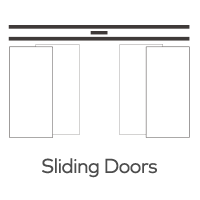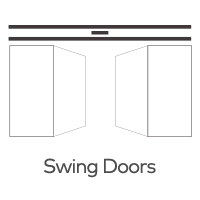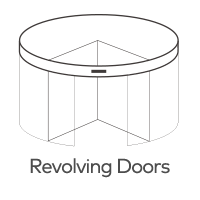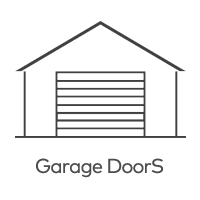Are Laser Safety Sensors Suitable for All Types of Automatic Doors, or Are They Specific to Swing Doors?
Automatic doors have become a staple in modern architecture, offering convenience, accessibility, and enhanced security for residential, commercial, and industrial properties. A critical component of these systems is the safety sensor, which ensures the door operates safely by detecting obstacles and preventing accidents. Among the various types of safety sensors available, laser safety sensors have gained popularity due to their precision and reliability. But are they suitable for all types of automatic doors, or are they specific to swing doors? Let’s explore this question in detail.
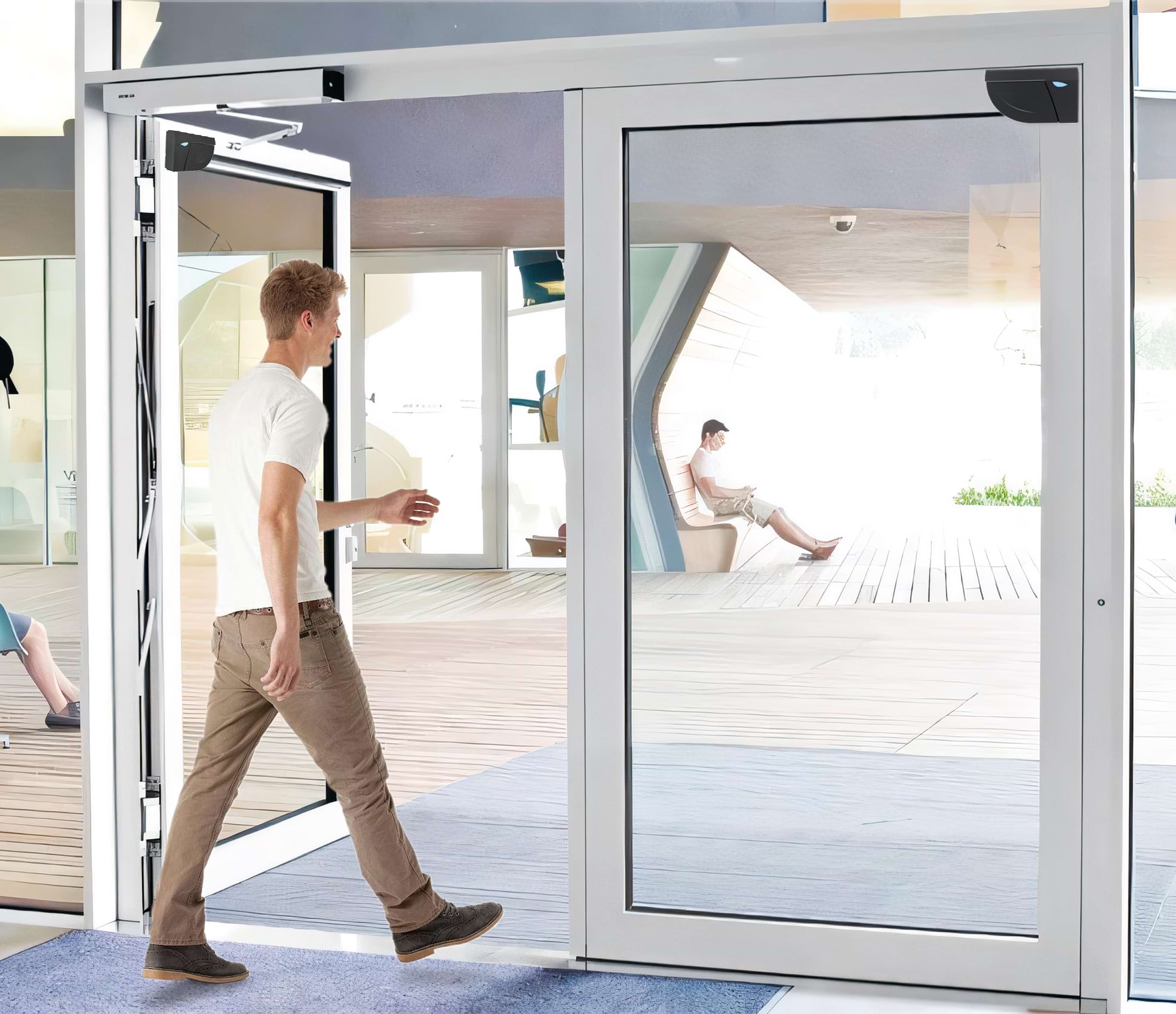
What Are Laser Safety Sensors?
Laser safety sensors are advanced devices that use laser beams to detect objects, people, or vehicles in the path of an automatic door. When the laser beam is interrupted, the sensor sends a signal to the door control system to stop or reverse the door’s movement, preventing collisions and ensuring safety. These sensors are known for their high accuracy, long detection range, and ability to function effectively in various environmental conditions.
Types of Automatic Doors
Automatic doors come in several designs, each suited to specific applications. The most common types include:
- Swing Doors: These doors open and close by swinging inward or outward on hinges. They are commonly used in residential properties, small businesses, and low-traffic areas.
- Sliding Doors: These doors move horizontally along a track and are often used in high-traffic areas like shopping malls, airports, and office buildings.
- Folding Doors: These doors consist of multiple panels that fold open and closed, making them ideal for spaces with limited room for door swing.
- Revolving Doors: Typically used in commercial buildings, these doors rotate around a central axis to allow continuous entry and exit while maintaining energy efficiency.
- Overhead Doors: Commonly found in garages and industrial facilities, these doors move vertically to open and close.
Are Laser Safety Sensors Suitable for All Door Types?
The suitability of laser safety sensors depends on the specific type of automatic door and its operational requirements. Here’s a breakdown:
1. Swing Doors
Laser safety sensors are highly effective for swing doors. Their precise detection capabilities ensure that the door stops or reverses if an obstacle is detected in its path. This is particularly important for swing doors, which can cause injury or damage if they close on a person or object.
2. Sliding Doors
Sliding doors also benefit from laser safety sensors, especially in high-traffic areas. The sensors can detect movement across a wide area, ensuring the door remains open when someone is passing through and closing only when the path is clear.
3. Folding Doors
For folding doors, laser safety sensors can be used to detect obstacles in the folding mechanism’s path. However, the installation may require careful positioning to ensure the sensors cover the entire operational area.
4. Revolving Doors
Revolving doors present a unique challenge due to their continuous motion. While laser safety sensors can be used to detect obstructions, they are often combined with other safety mechanisms, such as motion sensors or pressure-sensitive edges, to ensure comprehensive safety.
5. Overhead Doors
Overhead doors, such as those used in garages or industrial facilities, can also utilize laser safety sensors. These sensors are particularly useful for detecting vehicles or objects in the door’s path, preventing accidents during operation.
Advantages of Laser Safety Sensors for Automatic Doors
- High Precision: Laser sensors offer accurate detection, minimizing false triggers and ensuring reliable operation.
- Long Range: They can detect objects over greater distances compared to traditional infrared or motion sensors.
- Durability: Laser sensors are designed to withstand harsh environmental conditions, making them suitable for both indoor and outdoor use.
- Versatility: They can be integrated with various types of automatic doors and security systems.
Limitations and Considerations
While laser safety sensors are versatile, there are a few factors to consider:
- Installation Complexity: Proper installation is crucial to ensure optimal performance. This may require professional expertise.
- Cost: Laser sensors are generally more expensive than traditional sensors, which may impact budget considerations.
- Environmental Factors: Extreme weather conditions, such as heavy rain or fog, can occasionally affect the sensor’s performance.
Conclusion
Laser safety sensors are a versatile and reliable solution for enhancing the safety of automatic doors. While they are particularly well-suited for swing and sliding doors, they can also be adapted for use with folding, revolving, and overhead doors. Their precision, durability, and ability to integrate with other security systems make them an excellent choice for both residential and commercial applications.
If you’re considering upgrading your automatic door system with laser safety sensors, consult with a professional to determine the best solution for your specific needs. At Qinuo Electronics Co., Ltd., we specialize in advanced door automation and safety systems, ensuring your property remains secure and efficient. Contact us today to learn more!


